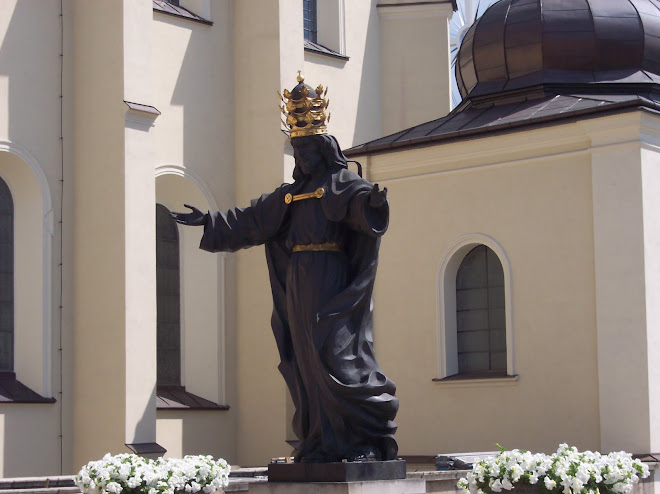"Why don't the British like us?" I often have to try to answer that question here in Poland, and the answer tends to be along these lines:
The English, ever since the Great Fraud of Henry VIII have had an aversion to Catholics
They have an aversion to foreigners.
They know little geography and less history. (Duh? Where is Poland?) They distrust well-educated people (envy?). By contrast, my postman here in Poland, remarked, when I said I would not be returning to England, "As Epicurus said, 'You can't step twice into the same river'."
Good fortune has rendered the Briish devoid of gratitude.
Today, a sympathetic Daily Telegraph blog, by Daniel Hannan, followed by the usual duck-speaking comment-writers, has moved me to try and explain a few facts about Poland.
From the 1780s to 1918, Poland as an independent nation did not exist. Poland did not appear in the ancient atlases we still used at school in the 1950s. Partitioned between Russia, Prussia, and Austria-Hungary, it was, as Paderewski remarked, "Not so much a country as a state of mind".
The effects of the partitioning were not uniform. The Astro-Hungarian occupation was mainly benign, with employment and education open to imperial subjects. The Russian presence varied from tolerable to barbaric. The Prussian occupation, particularly after the passing of the Falk laws, was oppressive. The Polish language was proscribed in schools, and children who used it were flogged. By the beginning of the 20th century, a Pole could sell his house only to a German national.
Poland became independent in 1918. In 1920 Poland repelled a U.S.S.R invasion at the battle of the Vistula. The invasion, Stalin's brainchild, was intended to pass through Poland to Germany, foment revolution in Germany, and help German communists install a Marxist state. Stalin's hope was that the whole of western Europe would fall to communism.
Perhaps Europeans should be thanking Poland, the nation whose earlier intervention in 1683, led by King Jan Sobieski's army, at the battle of Vienna may well have saved Europe from being overrun by the Ottoman Empire. Sharia, anyone?
In the 2nd World War, Germany killed 20% of the Polish population, half of them Jews. The U.S.S.R. murdered 22,000 at Katyń. The Poles were doughty pilots in the Battle of Britain, killing more Germans per pilot than their British counterparts, using fewer mechanics, and losing fewer pilots and planes. Air Marshal Dowding said at the time, that it was not possible to say that without the Poles, the Battle of Britain would have been won by the U.K.
But Poland was sneered at by the British press, intrigued against by the civil service, the Curzon Line was secretly moved westward by the Polish traitor Lewis Namier, after he became a British citizen and a civil servant. Namier had access to the map, and passed his alteration to Stalin, so that Poland lost the historic city of Lwów (now Lviv) to the U.S.S.R. At Yalta, Stalin produced the map, asked if Churchill and Roosevelt agreed to the Curzon line, and when they assented, compensated the Poles with a chunk of Germany.
Snubbed by Thatcher over Katyń, emerging unbroken after 44 years of communism, Poland is now the butt of jokes, sneers, and smears, and was even accused last year by an intemperate Times columnist of celebrating Easter before the last war by burning Jews alive in their synagogues. The same learned and well-informed columnist thought it an insult to call Poles "Polacks". A Polish man is a Polak, and a Polish woman a Polka, but I doubt if he will read this.
So, thank you, Poles and Poland, that I am alive, have a family, am not a subject of the third reich, or a Muslim.
And thank you, Mary Queen of Poland, who over the centuries have imbued with such strength this remarkable nation.
Hatred Explained
-
So, what is emerging one week after Charlie Kirk’s brutal assassination?
The assassin was the “boyfriend” of a male who fancies himself a woman.
That is, h...
7 hours ago





































